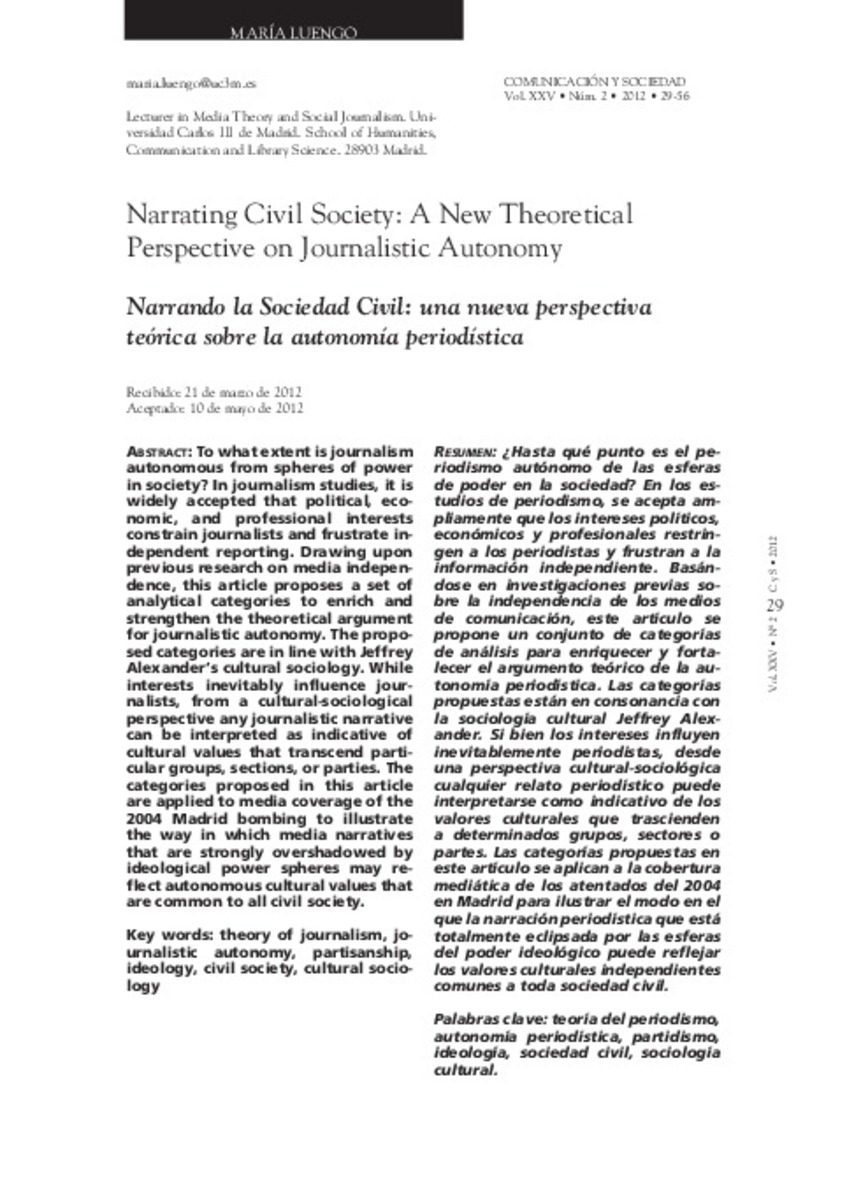Narrating Civil Society: A New Theoretical Perspective on Journalistic Autonomy
Palabras clave :
Theory of journalism
Journalistic autonomy
Partisanship
Ideology
Civil society
Cultural sociology
Fecha de publicación :
2012
Editorial :
Servicio de Publicaciones de la Universidad de Navarra
Cita:
LUENGO, M., ""Narrating Civil Society: A New Theoretical Perspective on Journalistic Autonomy"" en: Communication and Society/Comunicación y Sociedad, vol. XXV, n. 2, 2012, pp.29-56.
Aparece en las colecciones:
Estadísticas e impacto
0 citas en

0 citas en

Los ítems de Dadun están protegidos por copyright, con todos los derechos reservados, a menos que se indique lo contrario.







